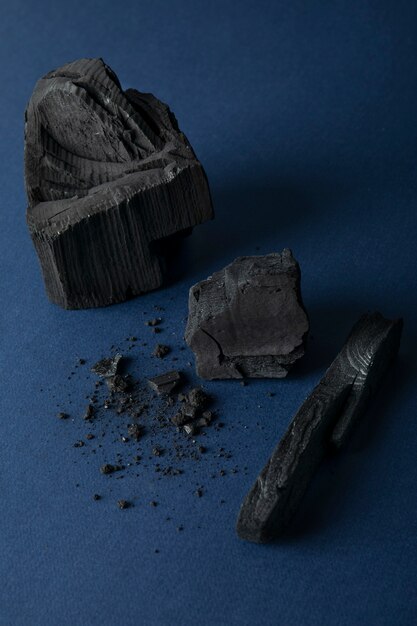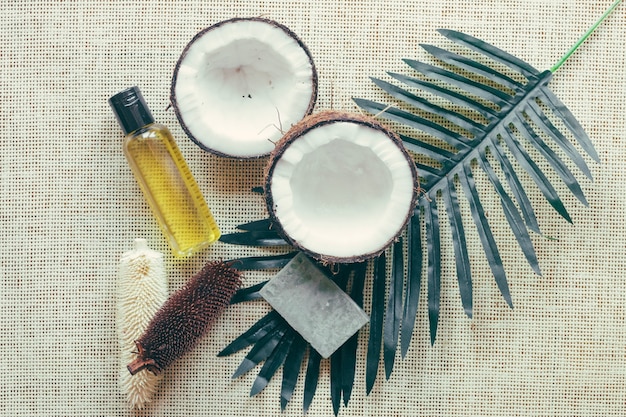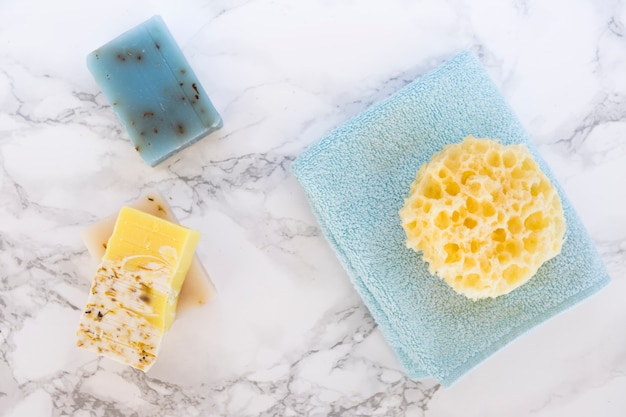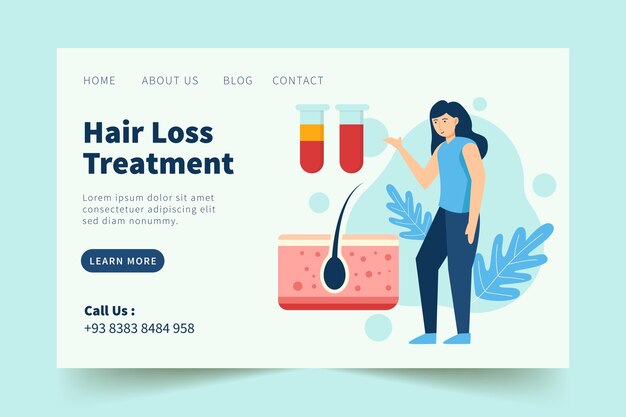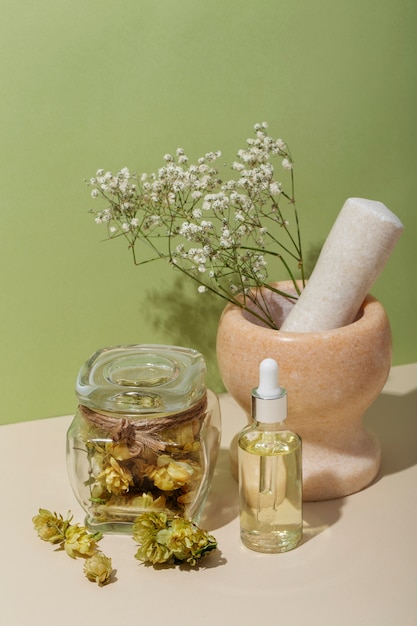
Thyme is an aromatic evergreen shrub commonly used as a kitchen herb. Besides its culinary uses, it’s known for its medicinal properties, with its leaves, flowers, and oil offering significant therapeutic benefits. The medicinal use of thyme dates back around 5000 years to ancient civilizations such as the Babylonians, Assyrians, and Sumerians.
In medieval Europe, thyme was often placed under pillows to help people sleep and ward off nightmares. The word “thyme” comes from the Greek word “thymus,” meaning courage. Ancient Greeks used fresh thyme in their baths, and warriors used it to boost physical endurance. In Ayurvedic medicine, thyme is valued for its astringent, antimicrobial, antiseptic, antispasmodic, and anti-inflammatory properties.
6 Benefits Of Thyme For Health & Beauty:
1. Acne: Thyme’s antibacterial properties make it effective against acne. Research from Leeds Metropolitan University found it more effective than standard acne treatments. Mix three parts coconut oil with one part thyme oil, and apply this mixture to your face nightly to combat acne-causing bacteria.
2. Hair Growth: Thyme provides essential nutrients to hair follicles, promoting healthy growth. It also improves blood circulation to the scalp. Mix thyme oil with coconut oil and rub it into the scalp to lock in moisture, deliver nutrients, and make your hair shiny.
3. Athlete’s Foot: Thyme has antifungal properties, making it a useful treatment for athlete’s foot. Add a few drops of thyme oil to warm water and soak your feet until the fungus clears up.
4. Heart Health: Thyme oil can prevent the inflammation that leads to cardiovascular disease. It helps cardiac valves function properly, relaxes veins and arteries, reduces blood pressure, and strengthens the heart.
5. Bad Breath: Due to its antibacterial and antiseptic properties, thyme is a common ingredient in mouthwash. Regular use helps maintain oral health and reduces the risk of cavities and gingivitis.
6. Insomnia: If you have trouble sleeping, try thyme tea. Its calming properties can reduce anxiety and improve your mood, aiding sleep.
DIY Thyme Spray to Stimulate Hair Growth & Beat Dandruff:
This scalp spray combines thyme, honey, and apple cider vinegar to lock in moisture and eliminate dandruff. Honey has potent antibacterial and anti-inflammatory properties, while apple cider vinegar is a natural astringent rich in vitamins for scalp and hair health.
Supplies:
– Fresh thyme (about 1/4 cup)
– 1 tablespoon of honey
– 1/2 cup raw apple cider vinegar
Steps:
1. Place thyme leaves in a glass jar, pour in the apple cider vinegar, and cover with a lid.
2. Let the mixture sit for 2-3 days.
3. Strain the leaves and pour the liquid into a bowl, then mix in the honey.
4. Transfer the mixture to a spray bottle.
How to Use:
Spray liberally on the scalp as needed. For thick hair, part it to ensure the spray reaches the scalp. This spray not only eliminates dandruff but also stimulates hair growth. Use it daily if necessary.
5 More Natural Remedies for an Itchy Scalp:
1. Apple Cider Vinegar: Effective for itchy skin and scalp, it kills yeast and viruses and balances pH levels. Rinse your hair with water, let it dry, then apply a mixture of equal parts vinegar and water using a spray bottle. Let it sit for five minutes before shampooing.
2. Coconut Oil: With antibacterial, anti-inflammatory, antifungal, and antiviral properties, coconut oil is excellent for conditioning the scalp. Rub a small amount onto your scalp, cover your head with a plastic bag, and leave it on overnight. Wash it out in the morning to relieve dryness and itchiness.
3. Aloe Vera: Fresh aloe vera gel alleviates scalp itchiness and inflammation. Apply a small amount to your scalp, let it sit for at least 15 minutes, then wash as usual.
4. Lemon Juice: Highly effective against dandruff, lemon juice’s antiseptic properties heal and cool the skin. Apply fresh lemon juice to your scalp, let it sit for five minutes, then shampoo. You can also mix it with water or yogurt for enhanced treatment.
5. Tea Tree Oil: Known for its antifungal, antibacterial, and anti-inflammatory properties, tea tree oil can help reduce scalp irritation. Add 20 drops to half a cup of your regular shampoo and use a few times a week, or mix it with coconut oil and massage into your scalp.
By incorporating these natural remedies, you can effectively manage an itchy scalp without relying on chemical-based treatments.
